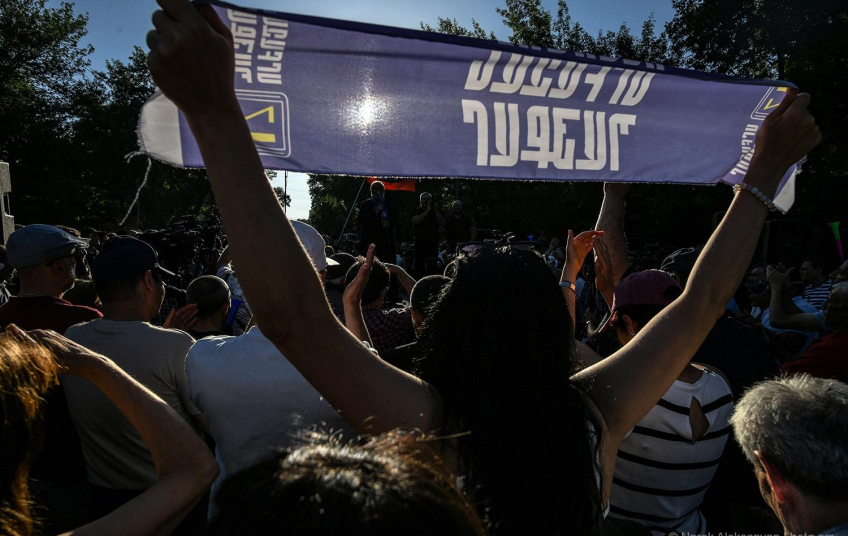Amidst protests, the incumbent regime has begun to brutally repress disobedient citizens through massive beatings, arrests, abductions, and other illegal actions. It is clear that, lacking public support, the government can only rely on the police or a major external player. In the latter case, it will have to auction off the country’s interests as compensation.
The failure of several street actions undertaken by the “Tavush for the Homeland” movement (how competently they were managed is another question), as well as attempts to humiliate the parliamentary opposition, have led to the struggle in Armenia losing its normal political course. This is a clear indicator of the instability of the political system. But first, let’s try to understand what a “political system” is and the place and role of the opposition within it.
A political system is the totality of political party organizations that accept the existing order of the country but have different ideas about the management style, tactics, and future. Political struggle takes place within the framework of the constitution, written and unwritten laws, and society gives its preference to a political force through elections, allowing for a peaceful, legal change of power. This is the situation in countries with a stable political system.
There is a rigid standpoint in Armenia that it is not possible to change the government through elections. Experience shows that a change of government occurs either through public uprisings or a coup d’état. And if neither succeeds, then power is maintained exclusively through the repressions carried out by the power structures, which we are witnessing today in Armenia, where actions of peaceful disobedience are met with increasingly violent actions against the opposition.
Read also
In general, two types of opposition are distinguished: systemic, which prefers to change the government through elections, and anti-systemic, which stands against the existing order, believing that the election system is broken and that a change of government should be achieved by generating street pressure demanding that the government be removed.
However, the incumbent government has no intention of resigning and is “fighting” on two fronts to keep its seat: against the parliamentary or systemic opposition, it uses discrediting and humiliation propaganda, and against the anti-systemic opposition, it employs harsh force, i.e., the entire police arsenal, with punitive groups of black and red berets. It is the process of complete discrediting of the systemic opposition in the National Assembly that led to the emergence of the anti-systemic opposition “Tavush for the Homeland,” although the leader of the movement does not consider their undertaking a political struggle.
In any case, the movement led by Archbishop Bagrat Galstanyan, Primate of the Tavush Diocese of the Armenian Apostolic Church, has a power struggle component and ranks among the anti-systemic opposition, for which power struggle is preferred. The need for such a struggle arises when a) the political struggle becomes impossible and meaningless, and b) the prevailing feeling among the public is that the current government serves foreign interests, representing an invading regime.
We leave the conclusion to the discretion of the reader.
ACNIS (The Armenian Center for National and International Studies)

















































